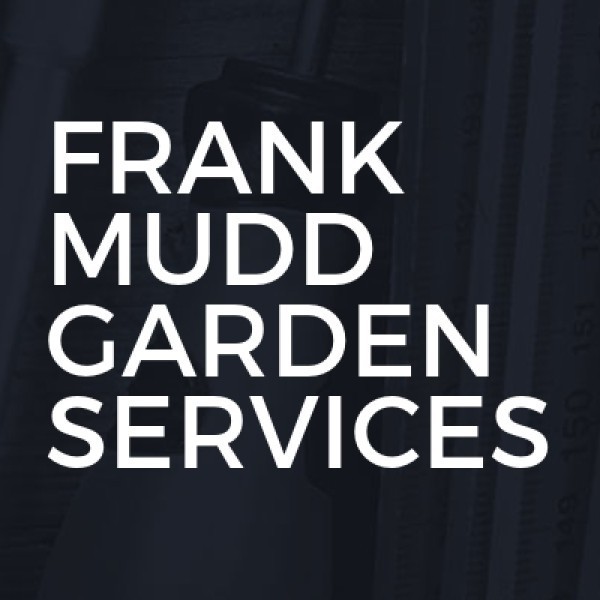Garden Fencing in Framlingham
Search Garden Fencing in places nearby
Introduction to Garden Fencing in Framlingham
Framlingham, a picturesque market town in Suffolk, is renowned for its charming landscapes and historical architecture. Amongst its many features, garden fencing plays a crucial role in enhancing the beauty and functionality of outdoor spaces. Whether you're a resident looking to spruce up your garden or a newcomer eager to blend in with the local aesthetic, understanding the nuances of garden fencing in Framlingham is essential.
The Importance of Garden Fencing
Garden fencing serves multiple purposes. It provides privacy, defines boundaries, and adds an aesthetic appeal to your property. In Framlingham, where gardens are often a point of pride, a well-chosen fence can complement the natural beauty of the area. Moreover, fencing can protect your garden from wildlife and ensure the safety of children and pets.
Historical Influence on Fencing Styles
Framlingham's rich history influences its garden fencing styles. Traditional wooden fences, reminiscent of the town's medieval past, are popular. These fences often feature intricate designs that reflect the architectural heritage of the area. Understanding these historical influences can help you choose a fence that not only meets your needs but also respects the town's cultural legacy.
Types of Garden Fencing Available
Choosing the right type of garden fencing is crucial for both functionality and aesthetics. In Framlingham, a variety of fencing options are available, each with its unique benefits and drawbacks.
Wooden Fencing
Wooden fencing is a classic choice, offering a natural look that blends seamlessly with garden landscapes. It's versatile, allowing for various styles such as picket, panel, or lattice. While wooden fences require regular maintenance to prevent rot and weather damage, their timeless appeal makes them a favourite in Framlingham.
Metal Fencing
Metal fencing, including wrought iron and aluminium, provides durability and security. These fences can be ornate or simple, catering to different aesthetic preferences. Metal fences are low-maintenance and can withstand harsh weather conditions, making them a practical choice for Framlingham's variable climate.
Vinyl Fencing
Vinyl fencing is a modern alternative that offers the look of wood without the upkeep. It's resistant to pests and rot, making it a long-lasting option. Vinyl fences come in various colours and styles, allowing homeowners to customise their garden's appearance while enjoying minimal maintenance.
Composite Fencing
Composite fencing combines wood fibres and plastic, offering the beauty of wood with enhanced durability. It's eco-friendly and requires less maintenance than traditional wood. Composite fences are available in a range of colours and styles, providing a versatile option for Framlingham gardens.
Choosing the Right Fence for Your Garden
Selecting the right fence involves considering several factors, including your garden's size, your budget, and your personal style preferences. In Framlingham, where gardens vary from quaint courtyards to expansive lawns, it's important to choose a fence that complements your space.
Assessing Your Garden's Needs
Before choosing a fence, assess your garden's specific needs. Do you require privacy from neighbours, or is security your primary concern? Perhaps you're looking to enhance your garden's aesthetic appeal. Understanding these needs will guide you in selecting the most suitable fencing option.
Budget Considerations
Your budget will significantly influence your fencing choice. While wooden fences may be more affordable initially, they require ongoing maintenance costs. Conversely, metal and composite fences may have higher upfront costs but offer long-term savings due to their durability and low maintenance requirements.
Style and Aesthetic Preferences
The style of your fence should reflect your personal taste and complement your home's architecture. In Framlingham, where traditional and contemporary styles coexist, you have the freedom to choose a fence that aligns with your aesthetic vision. Consider the colour, height, and design of the fence to ensure it enhances your garden's overall look.
Installation and Maintenance of Garden Fencing
Proper installation and maintenance are key to ensuring your garden fence remains functional and attractive. In Framlingham, where weather conditions can vary, it's important to follow best practices for both installation and upkeep.
Professional Installation vs. DIY
Deciding between professional installation and a DIY approach depends on your skills and budget. Professional installers have the expertise to ensure your fence is secure and level, which can be particularly important for larger or more complex projects. However, if you're handy and have the time, a DIY installation can be a rewarding project that saves money.
Regular Maintenance Tips
Maintaining your fence involves regular inspections and addressing any issues promptly. For wooden fences, this means treating the wood to prevent rot and repainting or staining as needed. Metal fences should be checked for rust, while vinyl and composite fences require occasional cleaning to remove dirt and debris.
Weather Considerations
Framlingham's weather can impact your fence's longevity. High winds, rain, and temperature fluctuations can all take a toll. Choosing weather-resistant materials and ensuring proper installation can mitigate these effects. Additionally, regular maintenance will help your fence withstand the elements.
Legal and Regulatory Considerations
Before installing a garden fence in Framlingham, it's important to be aware of any legal and regulatory requirements. These can include planning permissions, boundary agreements, and local council regulations.
Understanding Planning Permissions
In some cases, you may need planning permission to erect a fence, particularly if it exceeds a certain height or is located near a road. It's advisable to check with the local council to ensure compliance with any relevant regulations.
Boundary Agreements with Neighbours
Fencing often involves shared boundaries with neighbours. It's important to discuss your plans with them to avoid disputes. A written agreement can clarify responsibilities for maintenance and costs, ensuring a harmonious relationship.
Local Council Regulations
Framlingham's local council may have specific regulations regarding fencing materials, heights, and styles. Familiarising yourself with these rules will help you avoid any potential issues and ensure your fence is compliant.
Environmental Impact of Garden Fencing
Considering the environmental impact of your garden fence is increasingly important. Sustainable materials and practices can help reduce your fence's ecological footprint.
Sustainable Fencing Materials
Opting for sustainable materials, such as FSC-certified wood or recycled composites, can minimise environmental impact. These materials are sourced responsibly and often have a lower carbon footprint than traditional options.
Eco-Friendly Installation Practices
Eco-friendly installation practices, such as using non-toxic paints and sealants, can further reduce your fence's environmental impact. Additionally, choosing local materials and suppliers can decrease transportation emissions.
Recycling and Disposal of Old Fences
When replacing an old fence, consider recycling or repurposing the materials. Many components, such as metal and wood, can be recycled, reducing waste and conserving resources. Proper disposal of non-recyclable materials is also crucial to minimise environmental harm.
Enhancing Your Garden with Fencing
Garden fencing can do more than just define boundaries; it can enhance your garden's overall appeal and functionality. In Framlingham, creative fencing solutions can transform your outdoor space.
Incorporating Plants and Greenery
Incorporating plants and greenery into your fence design can create a lush, vibrant look. Climbing plants, such as ivy or roses, can soften the appearance of a fence and add a touch of natural beauty. This approach not only enhances aesthetics but also supports local wildlife.
Creating Functional Spaces
Fencing can be used to create functional spaces within your garden. For example, a fence can delineate a vegetable patch, provide a backdrop for a seating area, or offer a windbreak for delicate plants. Thoughtful placement and design can maximise your garden's usability.
Decorative Elements and Accessories
Adding decorative elements and accessories to your fence can personalise your garden. Consider incorporating features such as trellises, lighting, or artwork to create a unique and inviting atmosphere. These additions can reflect your personal style and enhance your garden's charm.
Cost Considerations for Garden Fencing
Understanding the costs associated with garden fencing is crucial for budgeting and planning. In Framlingham, various factors can influence the overall expense of your fencing project.
Initial Costs and Budgeting
The initial cost of a fence depends on the materials, size, and complexity of the design. Wooden fences tend to be more affordable, while metal and composite options may require a larger upfront investment. It's important to budget for both materials and installation costs.
Long-Term Maintenance Expenses
Long-term maintenance expenses should also be considered. Wooden fences may require regular treatments and repairs, while metal and composite fences generally incur lower maintenance costs. Factoring in these expenses will help you make an informed decision.
Cost-Saving Tips and Tricks
To save on costs, consider purchasing materials in bulk or opting for simpler designs. Additionally, a DIY installation can reduce labour expenses. However, it's important to balance cost savings with quality to ensure your fence is durable and effective.
Frequently Asked Questions
- What is the most popular type of garden fencing in Framlingham? Wooden fencing is the most popular due to its natural appearance and versatility.
- Do I need planning permission for a garden fence in Framlingham? It depends on the height and location of the fence. It's best to check with the local council.
- How can I maintain my wooden fence? Regular treatments with wood preservatives and repainting or staining can help maintain a wooden fence.
- Are there eco-friendly fencing options available? Yes, options like FSC-certified wood and recycled composites are eco-friendly choices.
- Can I install a garden fence myself? Yes, if you have the skills and tools, a DIY installation is possible. However, professional installation ensures quality and durability.
- What factors should I consider when choosing a fence? Consider your garden's needs, budget, style preferences, and any legal requirements.
Final Thoughts on Garden Fencing in Framlingham
Garden fencing in Framlingham is more than just a practical necessity; it's an opportunity to enhance your outdoor space's beauty and functionality. By understanding the different types of fencing available, considering your garden's unique needs, and adhering to local regulations, you can create a garden that reflects your personal style and complements the charming landscape of Framlingham. With careful planning and thoughtful design, your garden fence can become a cherished feature of your home.







